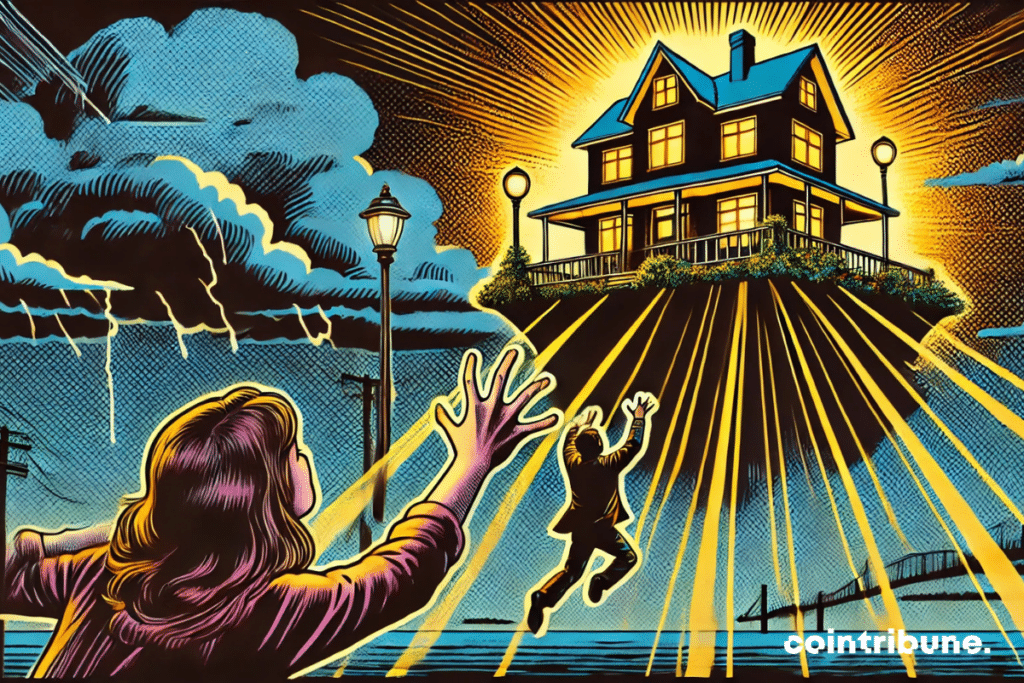Shortage Of Building Plots : The Effect Of The Climate Resilience Law
The dream of owning a detached house with a garden, shared by nearly 80 % of the French according to a recent study, could soon become inaccessible. The reason is a reform introduced by the Climate Resilience Law, which aims to reduce the artificialization of soils to preserve natural, agricultural, and forested areas. By 2050, this measure aims to achieve “net zero artificialization”, which radically transforms urban planning rules. This project, although ecological, is already leading to a surge in the prices of buildable land and limiting their availability, raising concerns among future homeowners and real estate professionals.

A reform with immediate consequences
In 2021, the government adopted the Climate Resilience Law with a clear objective: to preserve natural spaces and slow down soil artificialization. This measure, designed to protect agricultural, forest, and natural lands, aims to halve the rate of artificialization by 2031. In the longer term, the ambitious goal is to achieve “net zero artificialization” by 2050. To achieve this, municipalities must compensate for each new concreted area by creating an equivalent natural space, a constraint that complicates the issuance of building permits.
This limitation on the supply of building land exerts increasing pressure on the real estate market. By the end of 2023, the average price per square meter of buildable land in France was 90 euros, a notable increase compared to previous years. Regional disparities exacerbate these tensions: in Île-de-France, the cost reaches 233 euros per square meter, while in Normandy, it remains more moderate at 65 euros. This surge in prices, aggravated by inflation that also affects construction materials, makes access to home ownership increasingly difficult for middle-class households. Experts agree that this situation could permanently transform the real estate landscape in France, where the dream of a detached house becomes less and less realistic.
Towards a new equilibrium : perspectives and controversies
Although the reform is part of an essential ecological approach, it poses major challenges for housing and urban planning. The reduction in the supply of buildable land, combined with a surge in prices, could accelerate the transition towards a predominance of collective housing. This model of densification gradually relegates the idea of individual houses to a privilege reserved for the wealthiest households. Real estate professionals fear a significant slowdown in construction projects, a dynamic that threatens employment and economic activity related to construction.
Local authorities, responsible for implementing this reform, face considerable administrative and logistical constraints. They must juggle sometimes contradictory objectives: preserving the environment and responding to housing demand. This complex equation limits their room for maneuver and exacerbates geographic disparities. In rural areas, where buildable land is available but not much sought after, the impact remains limited. Conversely, in urban areas where land pressure is intense, tensions escalate. This duality raises questions about the equity of the reform’s implementation and its consequences for territorial balance.
In the background, these challenges underscore the need for a thorough reflection on the urbanization model in France. As the country turns towards more sustainable solutions, the choices made today will determine the future of housing, as well as how citizens will access ownership in the decades to come.
A key question arises: will the ongoing ecological transition make housing solutions accessible to the greatest number? To meet this challenge, it will be necessary to combine innovation, sustainable urban planning, and equity in access to ownership. The necessary adjustments, both economically and environmentally, could profoundly transform the individual housing model in France. As market players and local authorities navigate this new reality, the future of housing looks uncertain, at the intersection of major ecological, social, and financial issues.
Maximize your Cointribune experience with our "Read to Earn" program! For every article you read, earn points and access exclusive rewards. Sign up now and start earning benefits.
Diplômé de Sciences Po Toulouse et titulaire d'une certification consultant blockchain délivrée par Alyra, j'ai rejoint l'aventure Cointribune en 2019. Convaincu du potentiel de la blockchain pour transformer de nombreux secteurs de l'économie, j'ai pris l'engagement de sensibiliser et d'informer le grand public sur cet écosystème en constante évolution. Mon objectif est de permettre à chacun de mieux comprendre la blockchain et de saisir les opportunités qu'elle offre. Je m'efforce chaque jour de fournir une analyse objective de l'actualité, de décrypter les tendances du marché, de relayer les dernières innovations technologiques et de mettre en perspective les enjeux économiques et sociétaux de cette révolution en marche.
The views, thoughts, and opinions expressed in this article belong solely to the author, and should not be taken as investment advice. Do your own research before taking any investment decisions.